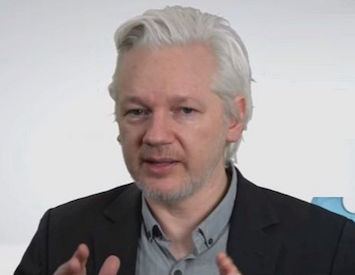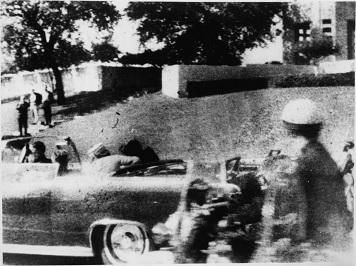The independence of the solicitor-general is a critical safeguard, which Brandis has arbitrarily removed, jeopardising Australia's democracy in the process, says James O'Neill.
ONE OF THE FUNDAMENTAL PRINICIPLES of a democratic society is the doctrine of the separation of powers.
This takes many forms, for example with Parliament voting on legislation proposed by the executive and any legislation passed being subject to review by the courts.
In a narrower context, the two most important non-judicial legal roles are filled by the positions of attorney-general (invariably a politician from the governing party) and the solicitor-general.
The latter is a non-political role. His or her main task is to provide legal advice to the government and other selected groups, including the governor-general, civil servants and members of the opposition.
As the solicitor-general also represents the government in hearings before the High Court, their legal capability and integrity are crucial elements of their job description.
The independence of the solicitor-general is a critical safeguard. He or she must be free to proffer legal advice governed only by their view of the relevant law. As has recently been disclosed, that view may not necessarily accord with the wishes of the government of the day. That only enhances the importance of their operational independence.
That system has worked well for over 100 years, since the foundation of the Commonwealth in 1901. Until this year. The current Attorney-General, Senator George Brandis, has changed the rules governing the seeking of the solicitor-general‘s advice so that any advice sought must be channeled through his office. It is immediately obvious that this constitutes not just a procedural change but a challenge to the very role of the solicitor-general as the provider of confidential advice.
No rational explanation has been given for this change. It is not merely procedural. By undermining the central tenet of the separation of powers it potentially compromises the ability to protect against the abuses of a tyrannical government. The most recent example of that was Solicitor-General Justin Gleeson's advice against the Coalition Government’s intention to strip dual citizens of their Australian citizenship on the basis of the government’s view as to whether or not they had engaged in “terrorist” activities. This appalling proposal represented a reversion to the worst excesses of the Star Chamber of the late 15th to mid 17th centuries in England.
That such protection is needed is not, or should not be, open to question. The events of 11 September 2001 have inspired governments around the world to introduce increasingly draconian legislation that limits or removes fundamental safeguards against the excesses of tyrannical government. Australia has been no exception to this trend.
Many Australians, perhaps most, have little or no idea of the extent to which their basic rights have been eroded. The reasons for this are not difficult to discern. The erosion of rights has been a bipartisan endeavour. Whether Labor or Coalition (and the latter have governed for nine of the past 15 years) since September 2001, no principled or vociferous opposition has been raised in the parliament, other than from representatives of the minor parties.
A corporate dominated and compliant mainstream media have similarly failed in their historic role of helping to hold governments to account. In recent years the ability to even debate significant issues, such as going to war, has been severely inhibited. It is unlikely that Australia will even hold a Chilcot-like inquiry into the disaster that was the illegal invasion of Iraq, let alone hold the political leadership to account.
The important difference between Australia and the other Western nations with whom we like to compare ourselves, is that Australia is unique in not having a bill of rights or equivalent document.
The courts have only the 1901 Constitution and that document is conspicuously silent on nearly all of a citizen’s rights of the type taken for granted in, for example, the United States with its Bill of Rights; Canada with its Charter of Rights and Freedoms; New Zealand with its Bill of Rights and all members of the European Union who look to the European Convention on Human Rights which also has its own Court.
This concentration of domestic power in a largely unaccountable executive and its agencies extends to Australia’s international obligations. Since the election of the Abbott Government in 2013 for example, Australia has either opted out of or disregarded, its obligations under the UN Charter on the Law of the Sea; the Convention Against Torture; the Convention on the Rights of the Child; the Refugee Convention and its Protocol and its obligations under the UN Charter by waging a war of aggression in Syria.
Many of these violations had their antecedents in the previous Labor Governments, which may be one reason that any objection from them is so muted. Recent reports about Nauru, or the PNG Supreme Court ruling on Manus Island have received little or no attention. The ABC 7.30 interview with Defence Minister Marise Payne was notable for its completely ignoring the illegality of Australia’s involvement in the ongoing war in Syria.
If the Labor Party has a view on the latter subject it has been well hidden. Parliament rarely sits, so even if the Government permitted a debate there would be little time to actually have one.
History teaches us that rights surrendered are not easily recovered. That the highly regarded Solicitor-General Justin Gleeson should be the one to resign while the Attorney-General lies to parliament; damages every portfolio he is inflicted upon; retains an invincible sense of self-righteousness; and has the support of the Prime Minister is a measure of how low standards of accountability have sunk.
Brandis is not alone in his arrogant disregard for constitutional conventions and the important safeguards that accompany them. He is joined by Peter Dutton and others in the race to the bottom.
The real victim of this sorry chronicle however is what we fondly recall as Australian democracy. It is now a severely tarnished model. The history of the past 15 years does not augur well for the survival of what little vestiges remain.
In that we are partly to blame. We persist in electing and re-electing people to the House and Senate who consistently show little or no regard for the fundamental principles of democracy.
The dispute between Brandis and Gleeson is about a great deal more than the issue upon which media attention has been focused. It should be, to borrow an old simile, the canary in the coalmine.
Recent history suggests that we will fail to acknowledge its significance. Our society and our survival as a democracy may well be the real casualties.
James O'Neill is a former academic and has practiced as a barrister since 1984. He writes on geopolitical issues, with a special emphasis on international law and human rights. He may be contacted at joneill@qldbar.asn.au.

This work is licensed under a Creative Commons Attribution-NonCommercial-NoDerivs 3.0 Australia License
Monthly Donation
Single Donation
Be informed. Subscribe to IA for just $5.









